-
 Bitcoin
Bitcoin $104,092.7082
-3.90% -
 Ethereum
Ethereum $2,500.1510
-9.45% -
 Tether USDt
Tether USDt $1.0003
0.02% -
 XRP
XRP $2.1161
-5.92% -
 BNB
BNB $644.7652
-3.34% -
 Solana
Solana $143.3632
-10.62% -
 USDC
USDC $0.9995
-0.03% -
 Dogecoin
Dogecoin $0.1728
-9.80% -
 TRON
TRON $0.2700
-2.70% -
 Cardano
Cardano $0.6282
-9.47% -
 Hyperliquid
Hyperliquid $38.5896
-7.04% -
 Sui
Sui $2.9976
-10.50% -
 Chainlink
Chainlink $13.0865
-10.97% -
 UNUS SED LEO
UNUS SED LEO $8.8697
1.35% -
 Stellar
Stellar $0.2563
-7.44% -
 Bitcoin Cash
Bitcoin Cash $401.8213
-6.21% -
 Avalanche
Avalanche $18.8844
-11.63% -
 Toncoin
Toncoin $2.9457
-8.46% -
 Shiba Inu
Shiba Inu $0.0...01163
-9.64% -
 Hedera
Hedera $0.1538
-10.65% -
 Litecoin
Litecoin $82.4785
-9.46% -
 Polkadot
Polkadot $3.7430
-9.96% -
 Ethena USDe
Ethena USDe $1.0004
-0.01% -
 Monero
Monero $306.8529
-6.55% -
 Dai
Dai $0.9998
0.01% -
 Bitget Token
Bitget Token $4.4842
-5.28% -
 Pepe
Pepe $0.0...01069
-13.19% -
 Uniswap
Uniswap $7.0207
-13.47% -
 Pi
Pi $0.5498
-13.03% -
 Aave
Aave $268.2967
-9.88%
How to make profit from Huobi contract
Huobi Contract empowers traders with diverse strategies, risk management techniques, and an intuitive interface to speculate on cryptocurrency price movements, allowing them to generate potential profits through leveraged derivatives trading.
Nov 07, 2024 at 08:34 pm

How to Make Profit from Huobi Contract
Huobi Contract is a cryptocurrency derivatives trading platform that allows users to speculate on the price of digital assets using leverage. By utilizing various trading strategies and risk management techniques, traders can potentially generate significant profits from Huobi Contract. This comprehensive guide will outline the essential steps involved in making profit from Huobi Contract, empowering traders to navigate the complexities of the platform and maximize their earning potential.
1. Understanding Cryptocurrency Derivatives
Cryptocurrency derivatives are financial instruments that derive their value from the underlying cryptocurrency. Unlike spot trading, where traders buy and sell physical cryptocurrency, derivatives allow traders to speculate on price movements without actually owning the underlying asset. The most common types of cryptocurrency derivatives include futures contracts, options, and perpetual contracts. Huobi Contract primarily offers perpetual contracts, which are similar to futures contracts but without an expiration date.
2. Creating a Huobi Account and Funding It
To initiate trading on Huobi Contract, traders must create an account on the platform. The registration process is straightforward and requires basic personal information. Once the account is created, traders need to fund it with cryptocurrency to commence trading. Huobi Contract supports a wide range of cryptocurrencies, including Bitcoin (BTC), Ethereum (ETH), and Tether (USDT). Traders can deposit funds into their account using various methods, such as wire transfer, credit card, or cryptocurrency transfer.
3. Familiarizing Yourself with Huobi Contract Interface
The Huobi Contract trading interface offers a comprehensive suite of tools and features designed to enhance the trading experience. Traders can choose between a light or dark theme, customize chart settings, and set price alerts. The interface provides real-time market data, order book depth, and trading history to facilitate informed decision-making. Additionally, Huobi Contract offers various order types, including limit orders, market orders, and stop-loss orders, providing traders with flexibility in executing their strategies.
4. Selecting a Trading Strategy
Developing a trading strategy is crucial for success in Huobi Contract. Traders can choose from various strategies, such as scalping, day trading, or trend following. Each strategy involves different market analysis techniques and entry and exit points. Traders should select a strategy that aligns with their risk tolerance, trading experience, and time availability.
5. Managing Risk and Using Leverage
Leverage is a double-edged sword that can amplify both profits and losses. Huobi Contract offers traders the ability to trade with leverage of up to 125x, which means they can control a position worth up to 125 times their initial margin. While leverage can magnify profits, it also amplifies losses. Traders should exercise caution when using leverage and always trade within their risk tolerance limits.
6. Monitoring Market Conditions and Hedging Positions
Continuously monitoring market conditions is essential to identify potential trading opportunities. Traders should regularly analyze price charts, news, and technical indicators to gauge market sentiment and identify trend reversals. Hedging positions can help mitigate potential losses by taking opposing positions in the same or correlated markets.
7. Managing Emotions and Psychology
Trading can be an emotionally charged activity, and letting emotions dictate decisions often leads to poor outcomes. Traders should remain disciplined and stick to their trading plan, avoiding impulsive or emotional trading. Developing a sound risk management strategy and strictly adhering to it helps traders maintain a level-headed approach amidst market volatility.
8. Continuous Learning and Improvement
The financial markets are constantly evolving, and successful traders continuously seek opportunities to enhance their knowledge and skills. Reading books, attending webinars, and analyzing market data helps traders refine their strategies and stay updated on industry trends. Additionally, traders should regularly review their trading performance, identify areas for improvement, and make necessary adjustments to their approach.
Disclaimer:info@kdj.com
The information provided is not trading advice. kdj.com does not assume any responsibility for any investments made based on the information provided in this article. Cryptocurrencies are highly volatile and it is highly recommended that you invest with caution after thorough research!
If you believe that the content used on this website infringes your copyright, please contact us immediately (info@kdj.com) and we will delete it promptly.
- Hyperliquid Continues to Outperform the Market, Rallying Again After Unit Spot Token Infrastructure Founder Reveals Two New Tickers
- 2025-06-13 12:00:28
- Is the Arbitrum (ARB) Price Set to Explode? This Chart Reveals the Comeback No One Saw Coming
- 2025-06-13 12:00:28
- PayPal Taps a Payments-Focused Blockchain to Expand Its PYUSD Stablecoin
- 2025-06-13 11:55:11
- Gold Nears a Critical Technical Threshold as Macroeconomic Uncertainties and Geopolitical Tensions Drive Investors to Safer Assets
- 2025-06-13 11:55:11
- Tether Expands Its "Dual Pillar" Investment Strategy with a Minority Stake in Elemental Altus Royalties
- 2025-06-13 11:50:12
- Circle Announces USDC Is Live on the XRP Ledger (XRPL) Mainnet
- 2025-06-13 11:50:12
Related knowledge

Cryptocurrency K-line chart technical analysis manual: Learn these methods to increase your chances of making a profit
Jun 11,2025 at 11:21pm
Understanding the Basics of K-line ChartsK-line charts, also known as candlestick charts, are one of the most widely used tools in cryptocurrency trading. Each K-line represents a specific time period and provides information about the open, high, low, and close prices during that interval. The body of the candle shows the relationship between the openi...
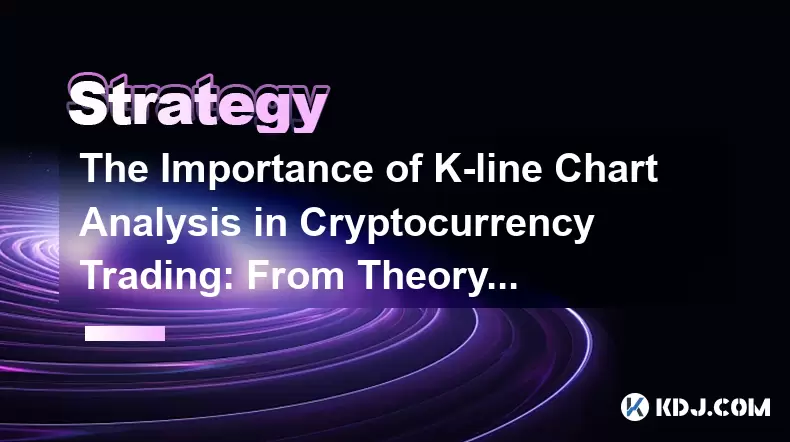
The Importance of K-line Chart Analysis in Cryptocurrency Trading: From Theory to Practical Cases
Jun 11,2025 at 04:56pm
Understanding the Basics of K-line ChartsK-line charts, also known as candlestick charts, are a visual representation of price movements over specific time intervals. Each K-line encapsulates four critical data points: the opening price, closing price, highest price, and lowest price within a given timeframe. These charts originated in Japan during the ...
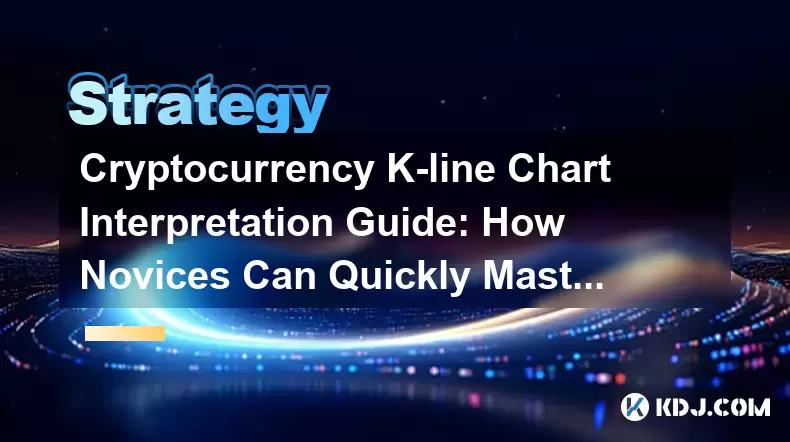
Cryptocurrency K-line Chart Interpretation Guide: How Novices Can Quickly Master the Basics of Technical Analysis
Jun 10,2025 at 08:56pm
Understanding the Basics of K-line ChartsK-line charts, also known as candlestick charts, are one of the most widely used tools in cryptocurrency trading for analyzing price movements. Each K-line represents a specific time period and shows the opening, closing, high, and low prices during that interval. For novices, grasping how to read these elements ...
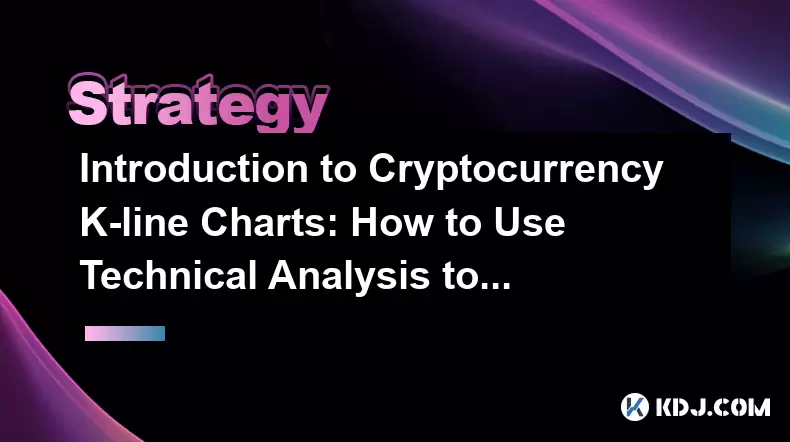
Introduction to Cryptocurrency K-line Charts: How to Use Technical Analysis to Optimize Trading Decisions
Jun 12,2025 at 03:56pm
Understanding the Basics of K-line ChartsK-line charts, also known as candlestick charts, are one of the most essential tools used in cryptocurrency trading. Originating from Japan, these charts visually represent price movements over specific time intervals. Each candlestick displays four key pieces of information: the opening price, closing price, hig...
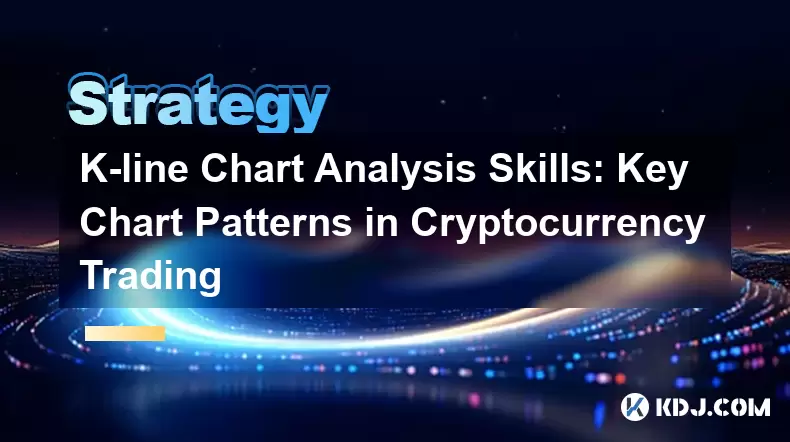
K-line Chart Analysis Skills: Key Chart Patterns in Cryptocurrency Trading
Jun 13,2025 at 10:21am
Understanding the Basics of K-line Charts in Cryptocurrency TradingK-line charts, also known as candlestick charts, are essential tools for analyzing price movements in cryptocurrency markets. Each candlestick represents a specific time frame and provides information about the open, high, low, and close (OHLC) prices during that period. In crypto tradin...
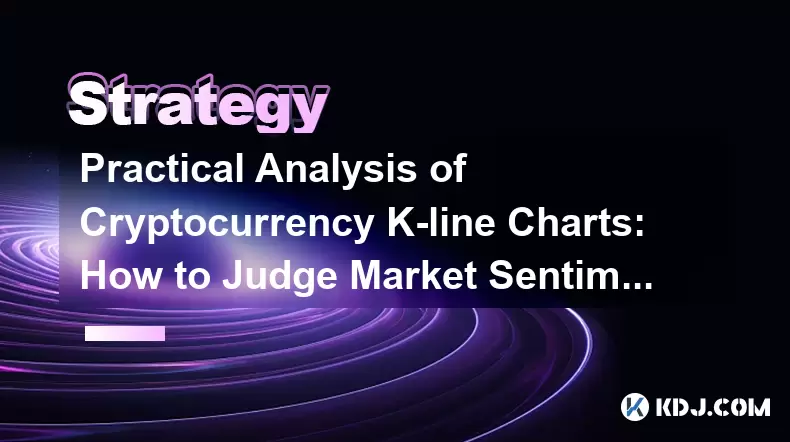
Practical Analysis of Cryptocurrency K-line Charts: How to Judge Market Sentiment through Charts
Jun 10,2025 at 09:42pm
Understanding the Basics of Cryptocurrency K-line ChartsCryptocurrency K-line charts, also known as candlestick charts, are essential tools for analyzing price movements in the crypto market. Each candlestick represents a specific time frame, such as 1 minute, 5 minutes, or even daily intervals. The structure of a K-line includes four key data points: o...

Cryptocurrency K-line chart technical analysis manual: Learn these methods to increase your chances of making a profit
Jun 11,2025 at 11:21pm
Understanding the Basics of K-line ChartsK-line charts, also known as candlestick charts, are one of the most widely used tools in cryptocurrency trading. Each K-line represents a specific time period and provides information about the open, high, low, and close prices during that interval. The body of the candle shows the relationship between the openi...

The Importance of K-line Chart Analysis in Cryptocurrency Trading: From Theory to Practical Cases
Jun 11,2025 at 04:56pm
Understanding the Basics of K-line ChartsK-line charts, also known as candlestick charts, are a visual representation of price movements over specific time intervals. Each K-line encapsulates four critical data points: the opening price, closing price, highest price, and lowest price within a given timeframe. These charts originated in Japan during the ...

Cryptocurrency K-line Chart Interpretation Guide: How Novices Can Quickly Master the Basics of Technical Analysis
Jun 10,2025 at 08:56pm
Understanding the Basics of K-line ChartsK-line charts, also known as candlestick charts, are one of the most widely used tools in cryptocurrency trading for analyzing price movements. Each K-line represents a specific time period and shows the opening, closing, high, and low prices during that interval. For novices, grasping how to read these elements ...

Introduction to Cryptocurrency K-line Charts: How to Use Technical Analysis to Optimize Trading Decisions
Jun 12,2025 at 03:56pm
Understanding the Basics of K-line ChartsK-line charts, also known as candlestick charts, are one of the most essential tools used in cryptocurrency trading. Originating from Japan, these charts visually represent price movements over specific time intervals. Each candlestick displays four key pieces of information: the opening price, closing price, hig...

K-line Chart Analysis Skills: Key Chart Patterns in Cryptocurrency Trading
Jun 13,2025 at 10:21am
Understanding the Basics of K-line Charts in Cryptocurrency TradingK-line charts, also known as candlestick charts, are essential tools for analyzing price movements in cryptocurrency markets. Each candlestick represents a specific time frame and provides information about the open, high, low, and close (OHLC) prices during that period. In crypto tradin...

Practical Analysis of Cryptocurrency K-line Charts: How to Judge Market Sentiment through Charts
Jun 10,2025 at 09:42pm
Understanding the Basics of Cryptocurrency K-line ChartsCryptocurrency K-line charts, also known as candlestick charts, are essential tools for analyzing price movements in the crypto market. Each candlestick represents a specific time frame, such as 1 minute, 5 minutes, or even daily intervals. The structure of a K-line includes four key data points: o...
See all articles

























































































